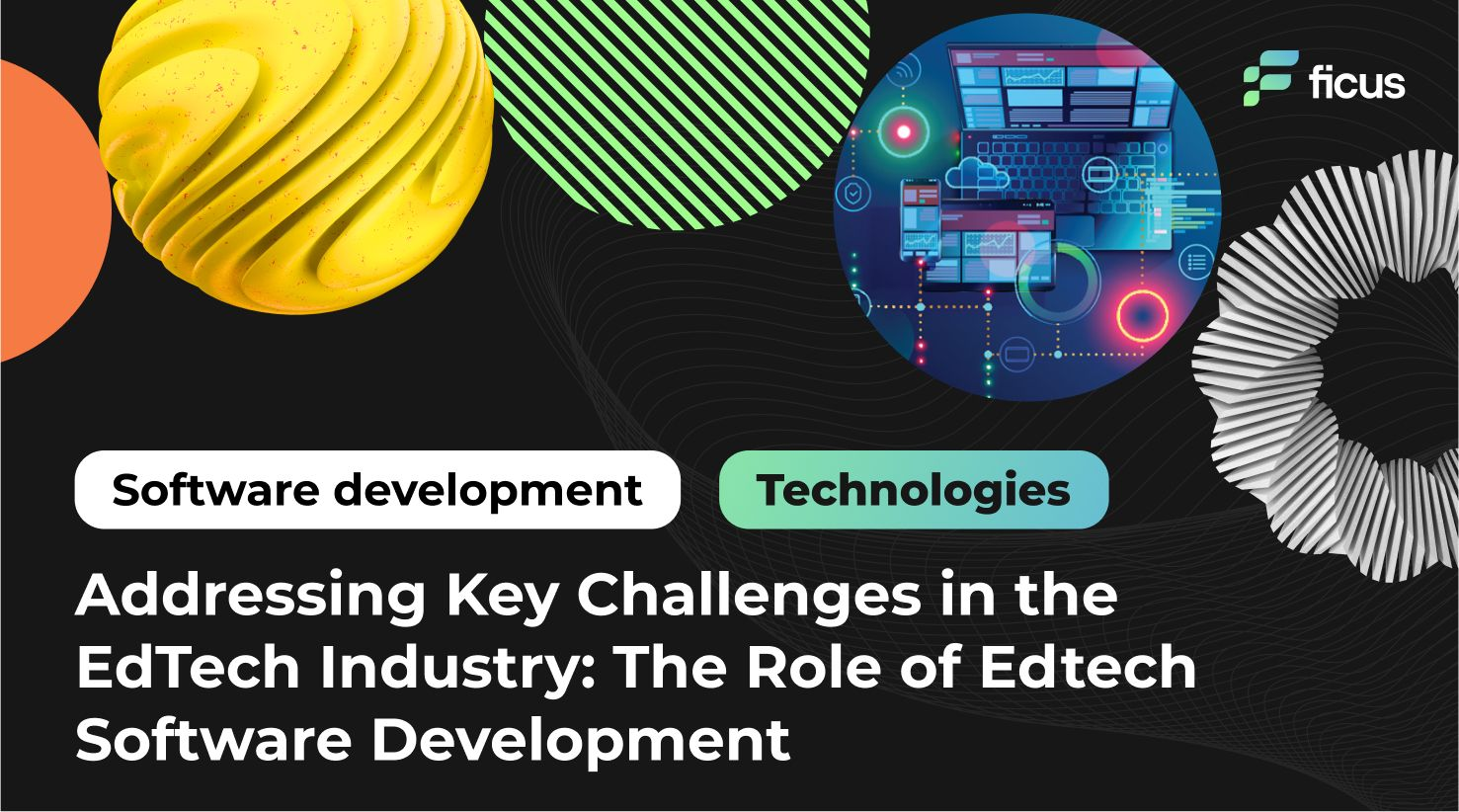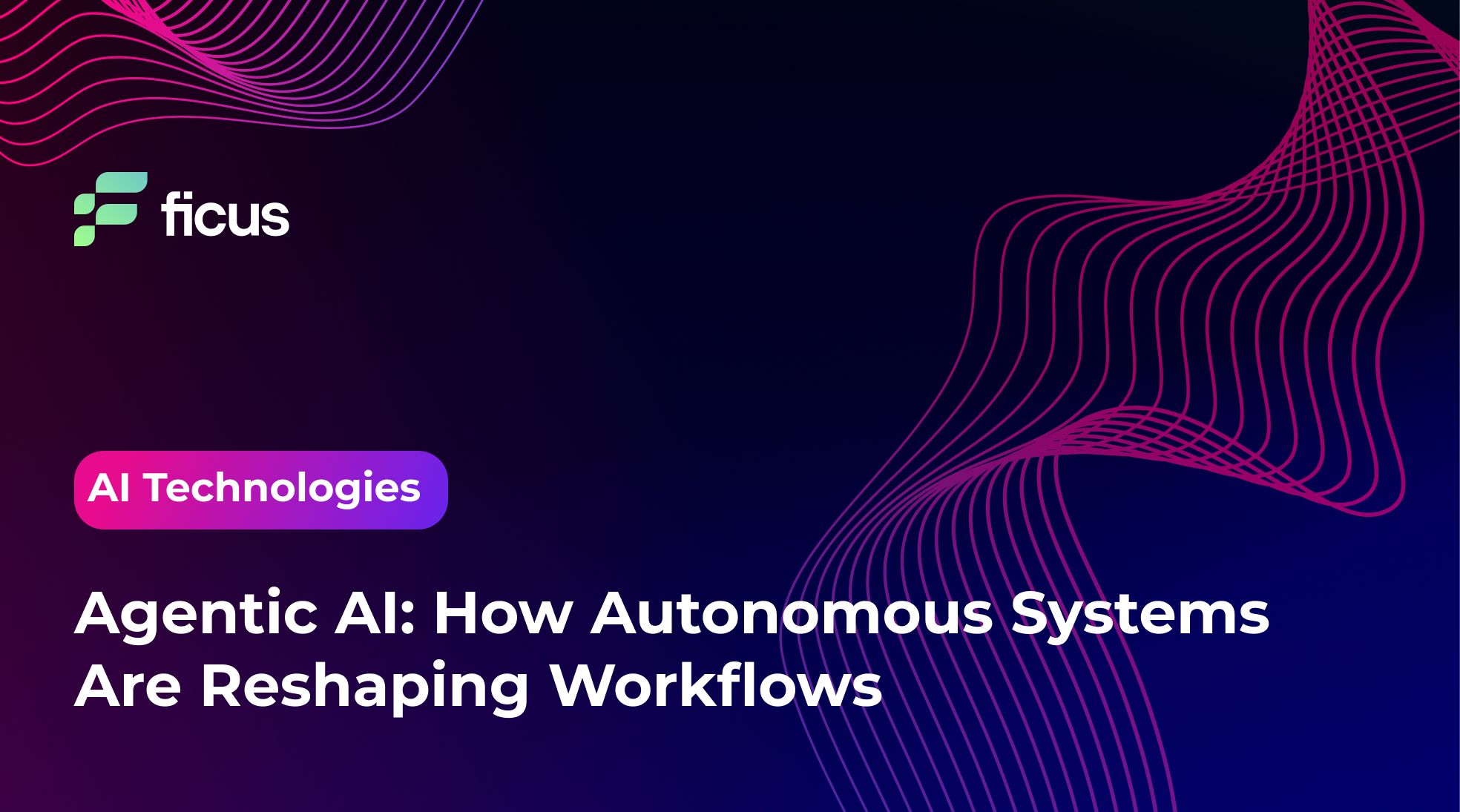EdTech software revolutionizes learning, transitioning from traditional methods to digital classrooms and online courses. This shift, accelerated by recent global challenges, highlights EdTech software as a pivotal element in education continuity. Edtech software development addresses the challenges in the EdTech industry, ensuring education remains accessible. As home-based learning became necessary, EdTech software proved essential, bridging the gap between students and educational resources.
- Edutech (Education Technology) encompasses various technologies like mobile apps, virtual reality, AI, and data analytics to enhance teaching and learning. It offers personalized, interactive, and efficient educational experiences.
- Edutech faces challenges such as access, teacher training, content quality, data privacy, and affordability.
- Edutech software development improves accessibility, personalization, interactivity, collaboration, and efficiency in education.
What is EdTech?
EdTech combines “education” and “technology” to revolutionize how we learn and teach. At the heart of this revolution is EdTech software, encompassing tools and platforms that increase educational engagement and efficiency. The field of EdTech software development is rapidly expanding, driven by the need for more personalized and interactive learning. However, challenges in the EdTech industry remain significant, including adapting technologies to different educational environments and ensuring access for all students. Addressing these challenges in the EdTech industry requires creative solutions for EdTech software development and a comprehensive understanding of pedagogical requirements, positioning EdTech software as an important element in transforming educational practices.

The Growing Demand for EdTech Solutions
The surge in EdTech software needs reflects a global shift towards digital learning platforms. As educational systems seek innovative methods to deliver content, EdTech software development has become increasingly significant, addressing diverse learning preferences and accessibility. Yet, the challenges in the EdTech industry, such as adapting to rapidly changing technology and meeting students’ varying needs, push developers to innovate continually. This growing demand for EdTech solutions underscores the necessity for robust EdTech software development, aiming to overcome challenges in the EdTech industry and enhance educational experiences through technology.
Learning is not the product of teaching. Learning is the product of the activity of learners.
John Holt
Why is EdTech(Education Technology) Important?
EdTech software underscores a transformative approach in the education sector, enabling personalized learning paths and broadening access to knowledge. The significance of EdTech software development lies in its ability to address the unique learning needs of students, facilitating engagement and comprehension beyond traditional classroom boundaries. However, challenges in the EdTech industry, such as ensuring inclusivity and adapting to diverse educational environments, persist. Despite these hurdles, the role of EdTech remains undeniable, offering scalable solutions that can lead to significant educational advancements and cost efficiencies, making learning accessible to individuals balancing work and study, and tailoring education to fit various learning velocities and styles.
Advantages of using Edtech
Embracing EdTech software significantly enriches education, offering students and teachers unique advantages. Enhanced by ongoing EdTech software development, these tools facilitate more tailored and interactive learning experiences, driving deeper engagement and improved comprehension in various subjects.
Edtech Improves the Overall Education System
Edtech software significantly improves the education system by transforming traditional learning into a dynamic, efficient, and enjoyable process. The rapid growth of the EdTech industry from $2.8 billion to an expected $10.2 billion underscores the potential of this sector to revolutionize education through the development of innovative EdTech software. By addressing the challenges of EdTech, such as the labor-intensive nature of traditional classroom learning, EdTech solutions are contributing to more engaging and effective learning. This growth not only underscores the effectiveness of EdTech software but also its indispensability in creating a future where education is more accessible, interactive, and tailored to individual learning needs.
EdTech is Cost-Effective
EdTech software is a model of cost-effectiveness, dispelling myths about high costs. Traditional educational systems are often highly-priced and lack a consistent link between inputs and outputs. However, EdTech software development offers a solution that significantly reduces the costs associated with traditional learning methods. E-learning, a key component of EdTech, allows you to scale training from one to many, reducing the cost of travel, resources, and additional classes. This efficiency solves the problems of the EdTech industry, proving that EdTech solutions not only improve learning but also do so in a financially sustainable way.
Educators and Educational Institutions are Blessings
EdTech software and its development have changed educational landscapes, but the essence of learning remains with educators and educational institutions. These organizations use EdTech software, overcome the challenges of the EdTech industry to enrich the learning experience. While EdTech software development provides the sector with tools for data-driven learning, the role of educators in effectively applying this technology is indispensable. While not all of them are tech-savvy, their commitment to adapting and integrating EdTech solutions into the curriculum underscores their irreplaceable value. They bridge the gap between technological advancement and practical, impactful education.
Better User Engagement and Learning Impact
EdTech software significantly increases user engagement and improves learning outcomes. By integrating innovative software, education goes beyond traditional boundaries to offer interactive and engaging content. This evolution responds to the challenges in the EdTech industry by prioritizing user experience, making learning more accessible and engaging. Through EdTech software, educational content, from multimedia to games and video tutorials, engages learners, ensuring sustained interest and improving comprehension. Thus, the strategic development of EdTech software attracts learners and profoundly impacts their educational journey, making learning an engaging and effective experience.
Big Data Gives Bigger Insights
EdTech software harnesses big data to revolutionize educational insights, addressing challenges in the EdTech industry through data-driven EdTech software development. This approach enables personalized learning paths and identifies knowledge gaps efficiently. By integrating big data, EdTech software enhances the learning experience and tailors education to individual needs. The strategic use of data in EdTech software development propels the education sector forward, offering educators and learners a robust tool for achieving educational excellence and preparing for the future job market.
Do you need Edutech Software Development?
Contact usTrends in educational technology
Exploring the latest trends in educational technology unveils how EdTech software and EdTech software development is reshaping learning. Despite challenges in the EdTech industry, these trends highlight the transformative power of tech in education.
1. Distance learning
Distance learning has surged, thanks to EdTech software. This growth responds to EdTech software development innovations, targeting challenges in the EdTech industry like accessibility and cost. Platforms like Coursera and Udemy exemplify this trend, offering affordable education solutions. This evolution in EdTech software supports diverse learning styles through synchronous and asynchronous methods, ensuring flexibility. Adopting EdTech software for distance learning reflects a broader shift towards lifelong education, making learning accessible to all, regardless of age or location, and highlighting the importance of EdTech software development in overcoming traditional educational barriers.
2. Immersive education
Immersive education, propelled by advancements in EdTech software and EdTech software development, transforms learning experiences. This approach addresses challenges in the EdTech industry by making learning more engaging through augmented and virtual reality. Tools such as VR headsets are now common in classrooms, enhancing the delivery of complex subjects. Edtech software has enabled simulation of real-world scenarios, increasing comprehension and retention. This method benefits learners of all ages, providing interactive and memorable educational experiences. The role of EdTech software in immersive education signifies a significant leap in how educational content is presented and consumed.
3. Big data and AI
Big data and AI are reshaping EdTech software, offering unparalleled personalization in learning. Through EdTech software development, these technologies address challenges in the EdTech industry, such as engagement and effectiveness. AI assists in creating adaptive learning experiences, while big data analytics optimize educational content. This EdTech software trend allows for a tailored approach to meet individual learner needs and enhance outcomes. Integrating AI and big data in EdTech software improves educational tools and provides insights into learning habits, marking a pivotal advancement in personalized education solutions.
4. Education accessibility through digitalization and mobile tech
Education accessibility through digitalization and mobile tech significantly enhances learning opportunities worldwide, underscored by the development of EdTech software. This progress addresses challenges in the EdTech industry by making educational resources widely accessible and affordable. EdTech software development creates digital textbooks that can be easily updated and translated, drastically reducing educational barriers for disadvantaged learners and those with disabilities. This effort by EdTech software marks a significant step towards more inclusive and equitable education for all.
5. Personalization
Personalization in education, driven by EdTech software, addresses individual learning needs, overcoming challenges in the EdTech industry. Through EdTech software development, platforms can offer customized learning experiences, ensuring content relevance and enhancing learner engagement. This approach leverages big data to tailor educational pathways, a significant advancement in EdTech software applications. Personalization represents a shift towards acknowledging diverse learner profiles and optimizing educational outcomes, demonstrating the profound impact of EdTech software development on making learning more effective and satisfying for every student.
6. Gamification
Gamification introduces a dynamic shift in engagement and motivation through EdTech software. Addressing challenges in the EdTech industry, EdTech software development incorporates game elements into learning environments, fostering a deeper interest in educational content. This approach benefits from the addictive nature of gaming, leveraging competition and rewards to stimulate dopamine release and encourage a love for learning. EdTech software that employs gamification supports individual achievement and promotes teamwork and strategic thinking, showcasing the versatile benefits of integrating game mechanics in educational contexts.
The Future of EdTech Software Development
The future of EdTech software development is poised to revolutionize how we approach learning, addressing challenges in the EdTech industry with innovative solutions. As EdTech software becomes more sophisticated, it will offer even more personalized learning experiences, leveraging AI and machine learning to adapt to individual learner needs. Integrating immersive technologies like VR and AR in EdTech software will make education more engaging, transforming traditional classrooms into interactive learning environments. Furthermore, EdTech software development will play a pivotal role in democratizing education, making it accessible to learners across the globe, regardless of their geographical location or socioeconomic status.
Make a breakthrough in educational technology with Ficus Technologies
Including “challenges in the EdTech industry” directly highlights the obstacles and difficulties currently faced in educational technology. This phrase sets a context that acknowledges the complexities and barriers that hinder fully realizing educational technology’s potential. It serves as a critical backdrop against which the innovations and advancements proposed by Ficus Technologies can be understood and appreciated. By addressing these challenges, Ficus Technologies is a forward-thinking entity committed to overcoming these hurdles by developing sophisticated, accessible, and engaging educational technologies.
For example, we can develop an interactive learning platform that uses artificial intelligence to adapt to each student’s learning pace, greatly improving interaction and understanding. This EdTech software empowers educators to tailor their teaching strategies, ensuring every student achieves their full potential.
This approach underscores the company’s expertise and commitment to innovation and aligns with the broader goal of enhancing and democratizing education globally.
Conclusion
EdTech software’s development significantly impacts the education sector, offering innovative solutions to overcome its challenges. By creating interactive and accessible learning platforms, EdTech software is making education more adaptable and engaging for students worldwide. This shift toward integrating technology into education underscores the need for EdTech to create a more inclusive and effective learning environment. As the demand for personalized and flexible learning experiences grows, the contribution of EdTech software is becoming increasingly significant, promising a future in which education is tailored to each student’s unique needs and pace.
Ficus Technologies specializes in developing EdTech solutions that meet the most diverse requirements of the education sector. Our experience in creating interactive learning platforms equipped with artificial intelligence allows educators to customize their teaching methods, maximizing student engagement and understanding. By partnering with Ficus Technologies, educational institutions can leverage the power of EdTech software to overcome traditional barriers, providing a more accessible and effective educational experience for all students.
EdTech software development can make education globally accessible by leveraging technology to break down geographical and financial barriers. Through online platforms and mobile applications, learners from remote or underprivileged areas can access high-quality educational materials and courses. Personalized learning experiences, enabled by artificial intelligence, cater to individual needs, accommodating different learning speeds and styles. Furthermore, EdTech can facilitate language translations and adaptations, making content available in multiple languages. By harnessing the power of the internet and digital devices, EdTech software ensures that quality education is not confined to traditional classrooms but is available to anyone with internet access.
Yes, EdTech software development can help bridge the digital divide in education by creating more inclusive and adaptable learning environments. By developing software that is accessible on various devices, including low-cost smartphones and tablets, EdTech can reach students in underserved communities. Features such as offline access to educational content ensure learning continuity in areas with unstable internet connectivity. Moreover, adaptive learning technologies can accommodate different learning styles and paces, providing personalized education paths. Through these initiatives, EdTech software development has the potential to equalize educational opportunities, regardless of a student’s geographical location or socio-economic status.









Edutech software development is crucial in tackling prevalent challenges within the education sector. It harnesses technology to enhance teaching and learning experiences, offering personalized, interactive, and efficient educational solutions. The article underscores these transformative aspects, highlighting hurdles like access, teacher training, and data privacy.
This article effectively conveys the significance of Edutech (Education Technology) in revolutionizing education. It comprehensively covers the challenges faced by Edutech, such as access and teacher training, while emphasizing the importance of data privacy and digital equity. The benefits of Edutech software development, including accessibility and personalization, are convincingly presented.
Edutech has emerged as a catalyst for profound transformation in the education sector. This article comprehensively addresses the challenges encountered by Edutech, spanning access, teacher readiness, content quality, and data security. It simultaneously highlights the manifold advantages of Edutech software development, particularly in revolutionizing teaching methodologies and enriching student engagement.